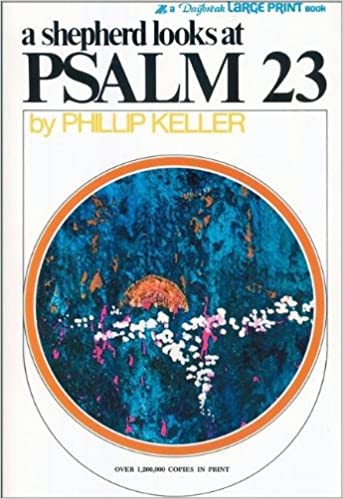
The morning before we announced that school would be closing for a few weeks due to COVID-19 concerns, we met in our small groups at NCCS. I have the privilege of co-leading a small group of junior girls with one of our amazing Bible Teachers. Honestly…I’m just in the group to learn from her and from the girls. They are such a blessing to me! We’ve had the privilege of being together as a group since our girls were freshmen. It’s been such a joy to watch them grow!
Our theme for this particular group meeting was to discuss Spiritual Warfare as another one of our amazing Bible Teachers had taught on this topic in chapel the week before. With the news ramping up all around us about the pandemic unfolding in our world, we decided to use our time to share the Bible verses that we cling to when we need to be reminded of the truth of God’s word. Our group quickly came up with a very long list of verses that many of us described as lifelines. Those verses have brought so much comfort in these past few weeks as we have gone from our campus being closed for a short period of time to being closed for the remainder of the school year.
Several of us mentioned parts of Psalm 23 as a place of comfort. Our other team leader mentioned how much she had learned from reading Phillip Keller’s A Shepherd Looks at Psalm 23. Keller was a shepherd and he brings a very unique and helpful perspective to this well beloved passage of Scripture. I read this book a long time ago and and had almost forgotten about it. As soon as the quarantine began, I ordered the book to reread and I am so glad that I did! This book was originally released in 1970 and it has so much encouragement and perspective for us to consider 50 years later.
I highlighted several things while reading and have posted those notes below…
The Lord is My Shepherd
- It links a limp of common clay to divine destiny – it means a mere mortal becomes the cherished object of divine diligence. p. 16
- I belong to Him simply because He deliberately chose to create me as the object of His own affection. p. 18
- Do I know rest and repose, besides a definite sense of exciting adventure, in belonging to Him? p. 23
I Shall Not Want
- When the Lord is my Shepherd, I should be utterly contented in the Good Shepherd’s care and consequently not craving or desiring anything more. p. 25
He Maketh Me to Live Down in Green Pastures
- In the course of time I came to realize that nothing so quieted and reassured the sheep as to see me in the field. The presence of their master and owner and protector put them at ease as nothing else could do, and this applied day and night. p. 35
- For God hath not given us the spirit of fear; but of power, and of love, and of a sound (disciplined) mind. (2 Timothy 1:7) p. 36
- When my eyes are on my Master they are not on those around me. This is the place of peace. p. 38
He Leadeth Me Beside the Still Waters
- And amid the all this chaos of a confused, sick society, Christ comes quietly as of old and invites us to come to Him. He invites us to follow Him. He invites us to put our confidence in Him. For He it is who best knows how we can be satisfied. He knows that the human heart, the human personality, the human soul with its amazing capacity for God can never be satisfied with a substitute. Only the Spirit and life of Christ Himself will satisfy the thirsting soul.” p. 49
He Restoreth My Soul
- Why art thou cast down, O my soul? And why art thou disquieted within me? Hope thou in God. p. 53
- A “cast” sheep is a very pathetic sight. Lying on its back, its feet in the air, it flays away frantically struggling to stand up, without success. Sometimes it will bleat a little for help, but generally it lies there lashing about in frightened frustration. p. 54
He Leadeth Me in the Paths of Righteousness for His Name’s Sake
- The greatest single safeguard which a shepherd has in handling his flock is to keep them on the move. That is to say, they dare not be left on the same ground too long. They must be shifted from pasture to pasture periodically. This prevents over-grazing of the forage. It also avoids the rutting of trails and erosion of land from over-use. It forestalls the reinfestation of the sheep with internal parasites or disease, since the sheep move off of the infested ground before these organisms complete their life cycles. p. 63
Yea, Though I Walk Through the Valley
- It is not until we have walked with Him through some very deep troubles that we discover He can lead us to find our refreshment in Him right there in the midst of our difficulty. p. 75
- The one who can best minister to a broken heart is one who has known a broken heart. p. 76
- There are going to be some valleys in life for all of us. The Good Shepherd Himself assured us that “in this world ye shall have tribulation: but be of good cheer; I have overcome the world.” (John 16:33). p. 78
Thy Rod and Thy Staff They Comfort Me
- The rod speaks, therefore, of the spoken Word, the expressed intent, the extended activity of God’s mind and will in dealing with men. It implies the authority of divinity. It carries with it the convicting power and irrefutable impact of “Thus saith the Lord.” p. 83
- Another insteresting use of the rod in the Shepherd’s hand was to examine and count the sheep. In the terminology of the Old Testament this was referred to as passing “under the rod” (Ezekiel 20:37). p. 84
- A sheep that passed “under the rod” was one which had been counted and looked over with great care to make sure all was well with it. p. 84
- This is what was meant in Psalm 139:23-24 when the psalmist wrote, “Search me, O God, and know my heart; try me, and know my thoughts: and see if there be any wicked way in me, and lead me in the way everlasting.” p. 84
- The staff is essentially a symbol of the concern, the compassion that a shepherd has for his charges. No other single word can better describe its function on behalf of the flock than that it is for their comfort. p. 86
- Whereas the rod conveys the concept of authority, of power, of discipline, of defense again danger, the word “staff” speaks of al that is long-suffering and kind. p. 86
Thou Preparest a Table Before Me
- When I come to the Lord’s Table and partake of the communion service which is a feast of thanksgiving for His love and care, do I fully appreciate what it has cost Him to prepare this table for me? p. 97
- Part of the mystery and wonder of Calvary, of God’s love to us in Christ is bound up too with the deep desire of His heart to have me live on a higher plane. He longs to see me living above the mundane level of common humanity. He is so pleased when I walk in the ways of holiness, of selflessness, of serene contentment in His care, aware of His presence and enjoying the intimacy of His companionship. To live thus is to live richly. To walk here is to walk with quiet assurance. To feed here is to be replete with good things. To find this tableland is to have found something of my Shepherd’s love for me. p. 98
Thou Anointest My Head with Oil
- And now no matter what storms I face, His very life and strength and vitality is poured into mine. It overflows so the cup of my life runs over with His life…often with great blessing and benefit to others who see me stand up so well in the midst of trials and suffering. p. 108
Surely Goodness and Love Shall Follow Me
- As I see all of this in retrospect I realize that for the one who is truly in Christ’s care, no difficulty can arise no dilemma emerge, no seeming disaster descend on the life without eventual good coming out of the chaos. This is to see the goodness and mercy of my Master in my life. It has become the great foundation of my faith and confidence in Him. p. 111
I Will Dwell in the House of the Lord Forever
- As I respond to Him and move in harmony with His wishes, I discover that life becomes satisfying and worthwhile. It acquires great serenity and is made an exciting adventure of fulfillment as I progress in it. This is made possible as I allow His gracious Spirit to control, manage, and direct my daily decisions. In fact, I should deliberately ask for His direction even in minute details. p. 122


